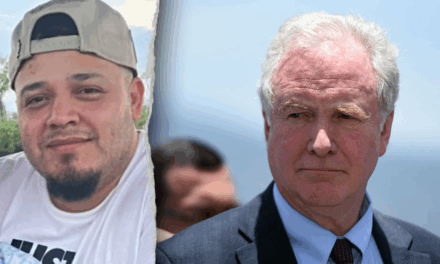In a significant move reflecting its commitment to fostering an inclusive environment, the renowned Mayo Clinic has announced that it will be renaming its Diversity, Equity, and Inclusion (DEI) office to the ‘Office of Belonging.’ This change aims to better encapsulate the organization’s core values and its mission to create an atmosphere where everyone feels welcomed and valued.
The trend of rebranding diversity efforts into more relatable concepts is becoming increasingly common within large institutions, as organizations strive to communicate their intentions more effectively. By adopting the term ‘belonging,’ Mayo Clinic seeks to emphasize the emotional and psychological experiences of its staff, patients, and the communities it serves. The new name serves to underscore the idea that true equity transcends mere representation; it is about ensuring individuals feel connected and engaged within their environment.
This rebranding initiative is not merely a cosmetic change. It represents a strategic shift in how the health care institution approaches its inclusion efforts. Leaders at Mayo Clinic believe that fostering a sense of belonging can encourage greater collaboration and creativity among employees, ultimately leading to improved patient outcomes and experiences.
Dr. Gianrico Farrugia, the President and CEO of Mayo Clinic, expressed his enthusiasm about the rebranding. He mentioned that “belonging is fundamental to our values and our mission. We want every individual who steps through our doors—whether they are patients, staff, or visitors—to know that they are an integral part of our Mayo family.”
The transformation comes at a critical time in the broader conversation around diversity and inclusion within American institutions. In recent years, there has been a growing awareness of the need for genuine inclusion strategies that go beyond policy changes. Many organizations have recognized that simply hiring from diverse backgrounds is not enough; they must also ensure that all employees feel they can thrive and express their authentic selves.
As part of the renaming, the Mayo Clinic intends to reinforce its ongoing initiatives that have been aimed at enhancing a culture of belonging throughout the organization. These initiatives include comprehensive training programs for employees and leadership, open forums for dialogue about inclusivity, and community engagement efforts that invite patient and family perspectives into organizational decision-making.
Moreover, Mayo Clinic plans to implement metrics to track the effectiveness of its belonging initiatives. By providing tools to measure feelings of belonging among staff and patients alike, the clinic can assess the impact of its strategies and make necessary adjustments to ensure all feel included in their environment. Research indicates that when individuals feel they belong, they are more likely to contribute positively and drive change within their organizations—something that Mayo Clinic aims to harness to improve overall health and wellness.
The reaction from staff at Mayo Clinic has been largely positive. Many employees see this rebranding as a step in the right direction, particularly in terms of acknowledging the lived experiences of individuals from underrepresented communities. Employees have shared that they often feel their voices are not sufficiently heard in large medical institutions. The renaming signifies an effort by Mayo Clinic to address these concerns by creating a more comprehensive approach to inclusion that prioritizes emotional well-being.
Belonging is a multifaceted concept that can have profound implications within a workplace. With the new Office of Belonging, Mayo Clinic aims to harness this understanding to boost morale, reduce burnout, and foster innovation. Employees report that companies where they feel a sense of belonging are places where employee retention rates significantly improve, creating a workforce that is more dedicated to the organization’s mission.
Additionally, Mayo Clinic’s transition to an Office of Belonging aligns with broader societal movements that champion intersectionality in the workplace. Intersectionality recognizes that individuals hold multiple identities that can impact their experiences within a given environment, stressing the importance of understanding context in diversity efforts.
The Mayo Clinic should also be commended for engaging the broader community in this transformation. Through outreach programs, partnerships with local organizations, and community health initiatives, Mayo is reinforcing its dedication not only to its employees but also to the populations it serves. By positioning belonging as a priority, Mayo Clinic is seeking to foster trust and rapport with diverse community segments, ultimately contributing to better health outcomes.
The rebranding also reflects an understanding of changing societal norms regarding disclosure and identity in professional settings. Patients are increasingly seeking care in environments where they feel culturally competent and understood. Thus, by working towards a more inclusive environment, Mayo Clinic anticipates that it can enhance patient satisfaction and trust in healthcare delivery systems.
It is essential to note that while the renaming of the DEI office to the Office of Belonging demonstrates a positive advancement in Mayo Clinic’s philosophy, establishing a supportive and inclusive culture is an ongoing process. Stakeholders must remain committed to continuous dialogue, education, and training aimed at awareness-building and skill development to achieve genuine belonging.
The journey towards fostering a culture of belonging is undoubtedly challenging, especially within large, fast-paced institutions like Mayo Clinic. However, it is also extraordinarily rewarding, as organizations that embrace these ideals are often more agile and responsive to the needs of their communities. The commitment to such ideals invariably strengthens the organization, paving the path for a compassionate and effective health care model.
As Mayo Clinic embarks on this new chapter, many eyes will be watching to evaluate how this transformation translates into tangible results across the organization. By prioritizing an emotional connection and sense of community through the Office of Belonging, Mayo Clinic underscores the essence of healthcare as a service deeply rooted in humanity. It asserts that fostering relationships, empathy, and understanding is at the heart of healing and innovation.
As similar organizations reflect on their own DEI strategies, Mayo Clinic’s Office of Belonging could serve as a model for others embarking on similar journeys. The transition could ignite a nationwide dialogue about how institutions can better serve the needs of all individuals, ensuring that no one feels isolated or marginalized.
In conclusion, the name change from the DEI office to the Office of Belonging signifies a progressive, empathetic shift in understanding the multifaceted nature of diversity, inclusivity, and the human experience. As society evolves, so too must our approaches to creating environments where everyone feels they belong, and Mayo Clinic has taken a vital step in this direction. The health sector’s commitment to inclusivity will not only elevate employee engagement but also ensure that patient care is at the forefront of community wellness.
































